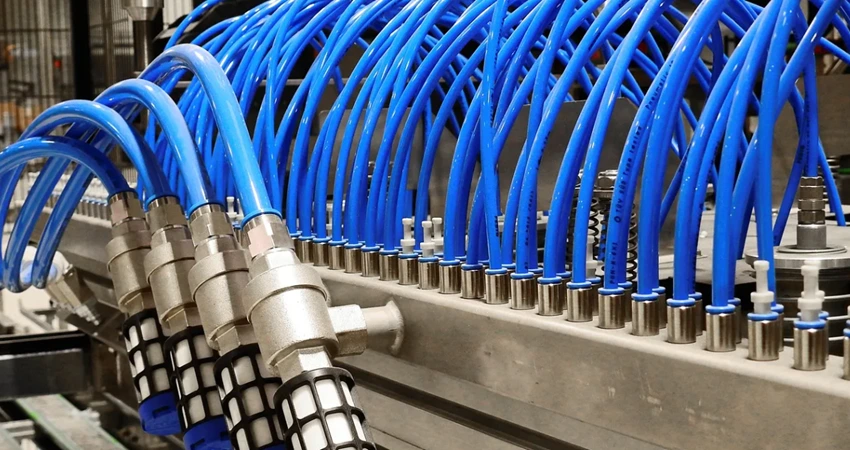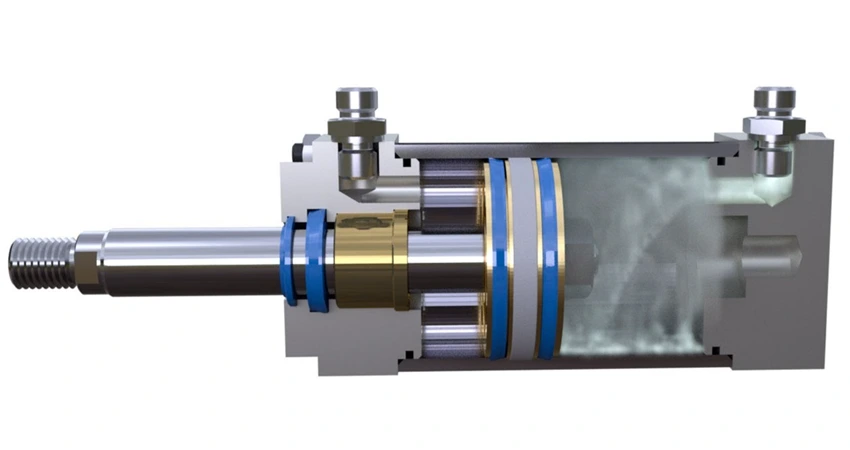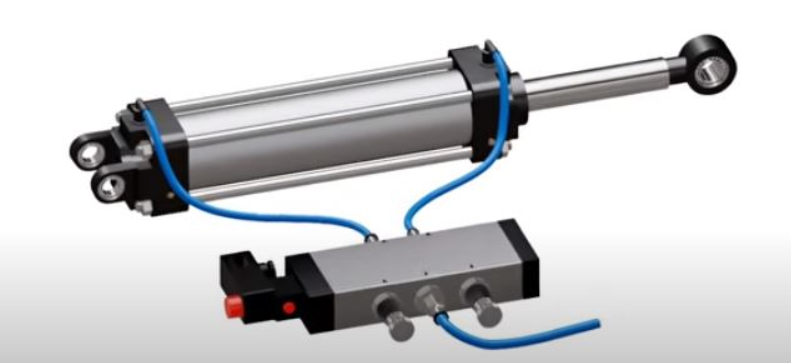Dimensions of service quality
✓ Like quality of products , it is not possible to define quality of services in terms of physical and functional characteristics alone. Quality of service is judged by the customers on many dimensions in addition to the physical and functional characteristics associated with the service.
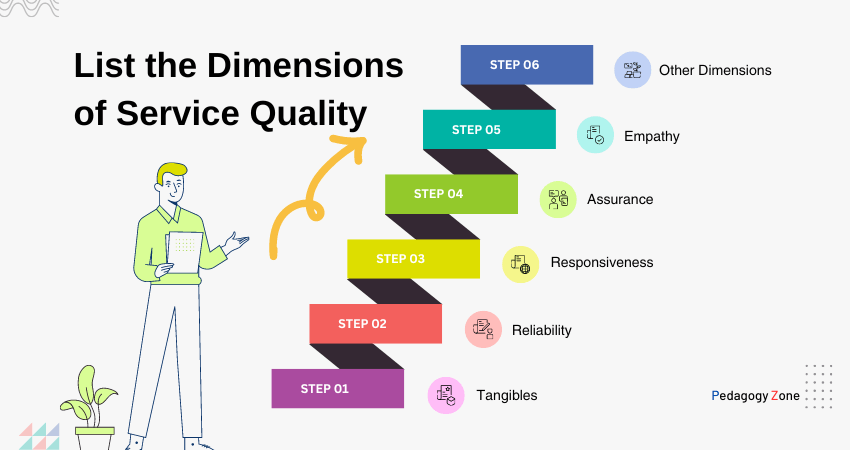
✓ The various dimensions of service quality are presented in Fig 1.
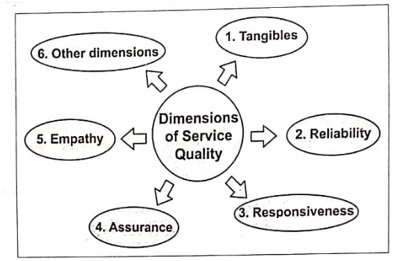
- Tangibles
✔ Tangibles refer to a service’s look or feel.
✔ Tangibles similar to the physical characteristics of quality of products. This refers to the physical characteristics of facilities, equipments, consumable goods and personnel used in or associated with the service provided.
✔ Examples: Does the equipment appear modern?; How clean is the waitress’s apron?; etc.
✔ However the quality is judged, not by some uniform specifications in terms of physical characteristics, but by the impact these physical characteristics have on customer assessment of the service quality. - Reliability
✔ Reliability refers to the dependability of the service providers and their ability to keep their promises.
✔ It is the extent to which the services performed matches implicity or explicity promises made by the service provider regarding the nature of service.
✔ For example, the basic quality of room décor, food, and facilities provided in a hotel. - Responsiveness
✔ Responsiveness refers to the reaction time of the service.
✔ It is the willingness to help the customer promptly in case of special and unforeseen requirements.
✔ For example, helping a customer who falls sick when staying in the hotel. - Assurance
✔ Assurance refers to the level of certainty a customer has regarding the quality of the service provided.
✔ It is the extent to which the service provider and the staff is able to inspire trust and confidence.
✔ For example, the customer dining in a restaurant may not be able to directly judge the level of hygiene maintained by the restaurants. Here it is not only important to actually provide hygienic food but also to inspire confidence that the food is hygienic.
✔ The assurance is regarding giving the customer peace of mind that everything will be taken care of as required, rather than just actually taking care when the need arises. For example, a doctor with MD degree may inspire more assurance than a doctor with just an MBBS degree, although the basic treatment provided by them may be of same quality. - Empathy
✔ Empathy is being able to understand the needs of the customer as an individual and meet the special requirements of the customer.
✔ This is more about customizing the service and the general service provider behaviour for each customer, rather than providing a uniform high quality treatment to all.
✔ Many companies try to create this sense of empathy by employing tactics like addressing each customer by name. However, true empathy means understanding the special characteristics and needs of individual customer, and modifying service to them accordingly. - Other Dimensions
The additional dimensions of service quality include:
(i) Time: Time the customer waits for the service.
(ii) Timeliness: Will the service meet time commitments?
(iii) Completeness: Are all commitments met?
(iv) Courtesy: Politeness, consideration, and friendliness of service personnel.
(v) Consistency: Are services delivered in the same manner for every customer, and every time for the same customer?
(vi) Accessibility and convenience: Is the service easy to obtain?
(vii) Accuracy: Is the service performed right the first time?
(viii) Competence: Possession of skills and knowledge required to perform the service.
(ix) Access: Approachability and ease of contact of service personnel.
(x) Communication: Educating and informing customers in language they can understand; listening to customers.
(xi) Credibility: Trustworthiness, belief, having customer’s best interest at heart.
(xii) Security: Freedom from danger, risk, or doubt.
Table 1. describes the five dimensions of service quality that customers use to evaluate service quality.
| S. No | Dimension | Meaning | Examples of questions that customers might ask |
| 1. | Tangibles | ✓ Appearance of physical facilities, equipment, personnel, and communication materials. | ✓ Are the hotel’s facilities attractive ?
✓ Is my bank statement easy to understand? ✓ Does the equipment modern? ✓ How clean is the waitress’s apron? |
| 2. | Reliability | ✓ Ability to perform the promised service dependably and accurately. | ✓ Is feedback regarding student progress always given?
✓ Is my college bus on time always? ✓ Is the problem fixed? |
| 3. | Responsiveness | ✓ Willingness to help customers and provide prompt service. | ✓ Are letters/e-mails replied with a day or two ?
✓ Is feedback on assignments given within a week in time for students? ✓ Are customer service personnel willing to answer my questions? |
| 4. | Assurance | ✓ Knowledge and courtesy of employees and their ability to convey trust and confidence. | ✓ Are the ticket counter attendants, train driver and guards knowledgeable about their jobs?
✓ Do the customer service personnel seem knowledgeable about the repair? |
| 5. | Empathy | ✓ Caring, individualized attention provided to customers. | ✓ Are customer service personnel and the cashier friendly and courteous?
✓ Are the telephone operators consistently polite when answering my calls? |
| Read More Topics |
| Mention important principles of TQM |
| Describe the various contributions of Deming |
| What is an integrated braking system? |


